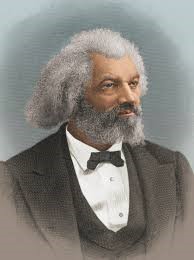
No matter who you are or where you come from, you have goals in life. Things you want to do. The type of person you want to become. It’s a common link between all men and women who have ever lived or ever will live. Inside each of us is a restless soul who wants to do more than they have, or be more than they are.
But no matter who you are or where you come from, there will come a time when you encounter obstacles to your goals. There will be times when the odds are stacked against you.
Fortunately, for those times we have heroes and legends to turn to.
One such legend is Frederick Douglass. He became one of the great orators, writers, and statesmen of American history.
I use the word “became” for a reason.
As is well-known, Douglass was born a slave in a tiny shack, soon to be separated from a mother he barely had the chance to know.
By the time he was twelve, Douglass had been sold to a man named Hugh Auld. Auld’s wife, eventually decided that slaves should not be educated, even forbidding Douglass to read the newspaper. Undeterred, Douglas taught himself how to read and write in secret.
Reading soon awakened Douglass’ eyes to the wrongness of slavery—and to the fact that he had the same rights as the people who sought to keep him ignorant. He was only a teenager when he tried to escape for the first time. His masters repeatedly beat him, but Douglass’ mind was already made up: he was no slave, but a free man. The chains that bound him were not a permanent condition to endure, but a temporary obstacle to overcome. By 1838, when he was only 20 years old, Douglass made his dream a reality when he escaped by jumping aboard a train bound for the North.
But Douglass’ goals didn’t end with freedom—they had only just begun. No sooner had he settled in the North did he devote his life to securing the rights and freedoms of others. He toured at home and abroad, giving speeches, writing pamphlets and books, campaigning not only for the rights of slaves but for women and Native Americans as well. Through it all, he contended both with mob violence and doubt as to how an ex-slave could read, speak, and write so well. Yet as he himself said:
“If there is no struggle, there is no progress.”
It’s impossible to do justice to all of Douglass’ accomplishments—or the work he put in to achieve them. But as I ponder the things I want to do in my own life, and the difficulties that stand in my way (which are of course nothing compared to what Douglass faced) I cannot fail to be moved by his example. I said above that Douglass became one of the great statesmen of American history. I use the word “became” because he was born into a world that did not want him to become a great statesman. He was born into a world where culture, society, and even law actively prevented him from being anything other than a slave. In short, the odds were overwhelmingly against him. But he persevered, and persevered … and became what he wanted to become. Or as he put it:
“We may explain success mainly by one word, and that word is ‘work.’ Work! Work!! Work!!!”
We have always taught our children to work. Actually I teach them the importance of just ‘showing up’ and then to get to work. Work is a blessing.
No matter who we are, we all have goals in life. May we always follow Frederick Douglass’ example in achieving them.




